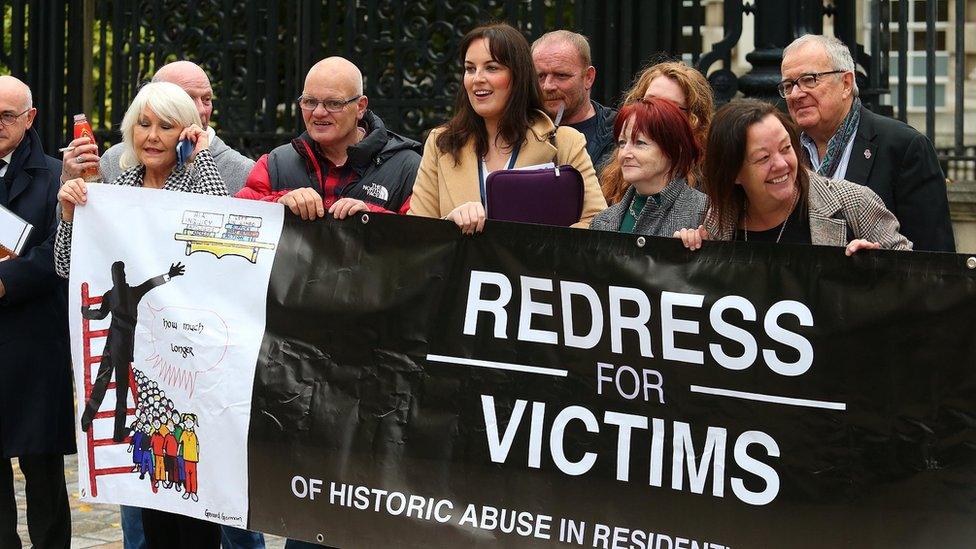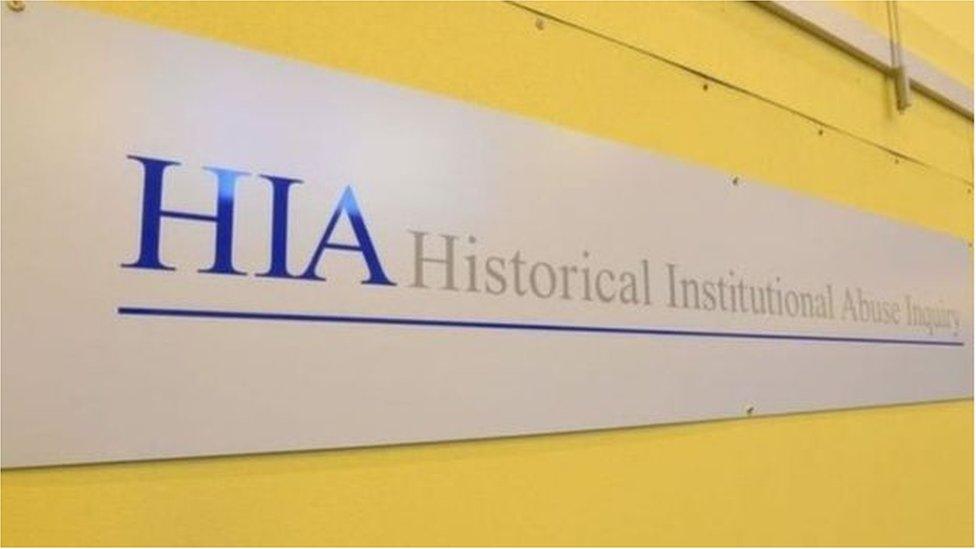Historical Institutional Abuse: Compensation process to be reviewed
- Published

A lengthy campaign to secure compensation for survivors took place prior to payments starting in 2020
The compensation process for survivors of historical institutional abuse in Northern Ireland is set to be reviewed.
First Minister Paul Givan and Deputy First Minister Michelle O'Neill made the announcement about the HIA redress scheme on Monday.
The redress board set up to process applications began issuing payments last year.
In April, a Stormont committee heard it could take 10 years to process about 5,000 applications.
Addressing assembly members, the commissioner for survivors of institutional childhood abuse Fiona Ryan told politicians a 10-year timeline was "just not acceptable".
"Victims and survivors have waited long enough," she added.
Ms Ryan made the estimation of the 10-year time period on the grounds that it had taken one year to process 506 applications.
While the establishment of the redress board was a "major achievement", there had been "dissatisfaction with the process", she added.
"My view has been that victims and survivors' experience is core to the redress process and if they are telling us that this process is unsatisfactory then we need to listen, and seek ways of incorporating their views and experiences so the process addresses their concerns and responds accordingly."

The redress board was set up to process applications to survivors of institutional abuse
Payments were a key recommendation from the Historical Institutional Abuse Inquiry, which examined allegations of child abuse at 22 residential institutions run by religious, charitable and state organisations across Northern Ireland over a 73-year period.
Assembly members were told during a debate on Monday that the process of applying for compensation risks "retraumatising" those who have suffered abuse.
'A clear imperative'
First Minister Paul Givan said he had "listened carefully to the views and experiences of victims and survivors of historical institutional abuse".
He said in the past 15 months, determinations had been made in more than 1,090 cases, with payments of £20m having been made.
Mr Givan said there was "a clear imperative to consider what can be done better".
Deputy First Minister Michelle O'Neill said delivering for survivors was a personal priority for her, and a "shared commitment for the whole executive".
"After years of their voices being suppressed or ignored, it is incumbent on us to do everything possible to make sure that never happens again," she said.
She added if they were able to make positive changes sooner, they would not have to wait for the review to be completed.
Work has begun on the terms of reference for the review and this is expected to be completed over the summer.
This will involve the redress board, the commissioner for survivors of institutional abuse and support services.
A motion calling for a review of the redress board had been brought to the NI Assembly by the SDLP's Colin McGrath, who is chairman of the Executive Office committee.
He told the assembly the redress board process, set up by Westminster when the Stormont institutions had collapsed, was "too judicial and legalistic".
Related topics
- Published21 April 2021
